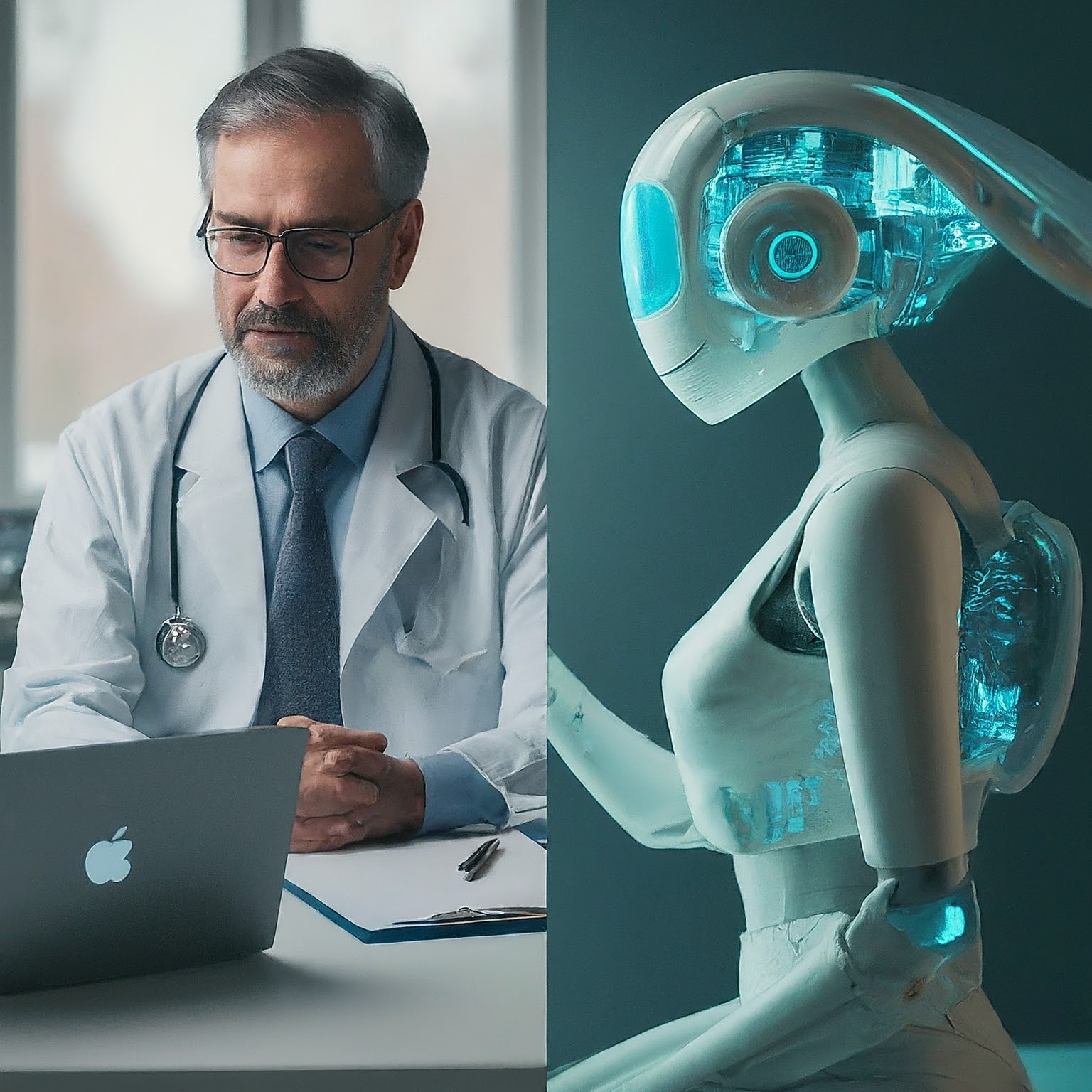Discover how Artificial Intelligence is revolutionizing the healthcare industry and shaping the future of medical practices.
Understanding the Role of AI in Healthcare
AI has emerged as a powerful tool in healthcare, with the potential to transform the industry in numerous ways. By leveraging machine learning algorithms and advanced data analysis techniques, AI can process vast amounts of medical data and provide valuable insights to healthcare professionals. This enables more accurate diagnoses, improved treatment planning, and personalized medicine.
Furthermore, AI can help healthcare providers in identifying patterns and trends in patient data, leading to early detection of diseases and better preventive care. With the ability to analyze medical images, AI can assist radiologists in detecting abnormalities and diagnosing diseases with higher accuracy. This not only saves time but also improves patient outcomes.
In addition to diagnosis, Artificial Intelligence can also play a crucial role in monitoring patient health. By analyzing real-time data from wearable devices and sensors, AI algorithms can detect changes in vital signs and alert healthcare providers in case of emergencies. This enables proactive and timely interventions, potentially saving lives.
Overall, AI has the potential to revolutionize healthcare by enhancing diagnosis, enabling personalized treatment, and improving patient care. However, it is important to address the challenges and ethical considerations associated with AI integration in healthcare to ensure its responsible and effective use.
Enhancing Diagnosis with Artificial Intelligence
One of the key areas where AI is making a significant impact in healthcare is diagnosis. Traditional diagnostic methods often rely on human expertise and are prone to errors and inconsistencies. AI-powered diagnostic tools, on the other hand, can analyze vast amounts of medical data, including patient history, lab results, and imaging studies, to provide more accurate and reliable diagnoses.
AI algorithms can detect subtle patterns and anomalies in medical images, allowing for early detection of diseases such as cancer. They can also analyze patient symptoms and medical records to identify potential diagnoses and recommend appropriate tests or treatments. By leveraging AI in diagnosis, healthcare professionals can benefit from improved accuracy, reduced errors, and enhanced efficiency.
Furthermore, AI can also assist in diagnosing rare diseases that may be challenging for human experts. By analyzing large databases of medical records and genetic information, AI algorithms can identify patterns and make accurate predictions, aiding in the diagnosis and management of rare conditions.
In summary, Artificial Intelligence is revolutionizing the field of diagnosis by providing healthcare professionals with advanced tools and insights. By leveraging AI-powered diagnostic systems, healthcare providers can enhance their ability to accurately diagnose diseases, leading to improved patient outcomes and more efficient healthcare delivery.
AI-powered Treatment Planning and Personalized Medicine
AI is not only transforming diagnosis but also revolutionizing treatment planning and personalized medicine. By analyzing large datasets of patient information, including genetic data, medical history, and treatment outcomes, AI algorithms can identify patterns and predict the most effective treatments for individual patients.
AI can help healthcare professionals in developing personalized treatment plans that consider the unique characteristics of each patient. By taking into account factors such as genetic variations, lifestyle choices, and environmental factors, AI algorithms can recommend tailored treatments that are more likely to be effective and have fewer side effects.
Moreover, AI can assist in drug discovery and development by analyzing vast amounts of biomedical research data. By identifying potential drug targets and predicting the efficacy of new compounds, AI can accelerate the process of drug discovery and reduce the costs associated with clinical trials.
Overall, AI-powered treatment planning and personalized medicine have the potential to revolutionize healthcare by improving treatment outcomes, reducing healthcare costs, and enhancing patient satisfaction.
Robotics and Automation in Healthcare
Another significant application of AI in healthcare is robotics and automation. Robots equipped with AI algorithms can perform complex surgical procedures with precision and accuracy, reducing the risk of human error. These robots can be controlled by surgeons remotely, allowing for minimally invasive procedures and faster recovery times.
In addition to surgery, robots can also assist in rehabilitation and physical therapy. By providing personalized exercises and monitoring progress, robotic systems can help patients recover from injuries or surgeries more effectively. They can also assist in elderly care by providing companionship and support in daily activities.
Automation is also being applied in various aspects of healthcare, such as administrative tasks, data entry, and appointment scheduling. By automating routine and time-consuming tasks, healthcare providers can focus more on patient care and improve operational efficiency.
The integration of robotics and automation with AI has the potential to transform healthcare by improving surgical outcomes, enhancing rehabilitation, and streamlining administrative processes.
Improving Patient Care
Artificial Intelligence has the potential to greatly improve patient care by enabling more personalized and proactive healthcare. By analyzing patient data, AI algorithms can identify individuals at high risk of developing certain conditions and recommend preventive measures. This can help in reducing the incidence of diseases and improving population health.
Furthermore, AI can assist in monitoring patient health and providing real-time feedback. Wearable devices equipped with AI algorithms can track vital signs, detect changes in health status, and alert healthcare providers in case of emergencies. This enables timely interventions and prevents adverse events.
AI-powered chatbots and virtual assistants can also enhance patient care by providing personalized support and answering common medical questions. These AI systems can offer information about medications, symptoms, and treatment options, improving patient education and engagement.
Overall, AI has the potential to revolutionize patient care by enabling early detection, proactive interventions, and personalized support. By leveraging AI technologies, healthcare providers can deliver more efficient and patient-centered care.
Improving Operational Efficiency with AI in Healthcare
In addition to improving patient care, Artificial Intelligence can also enhance the operational efficiency of healthcare institutions. By automating administrative tasks, such as data entry and appointment scheduling, AI can reduce the burden on healthcare staff and free up their time for more value-added activities.
AI algorithms can also optimize resource allocation and workflow management. By analyzing patient data and predicting demand, AI can help in optimizing bed allocation, staff scheduling, and inventory management. This leads to more efficient use of resources and improved healthcare delivery.
Furthermore, AI can assist in streamlining the billing and payment processes, reducing errors and improving revenue cycle management. By automating coding and billing tasks, AI can help in reducing billing errors and ensuring accurate and timely reimbursements.
Overall, AI has the potential to revolutionize the operational efficiency of healthcare institutions by automating tasks, optimizing workflows, and improving revenue management. By embracing Artificial Intelligence technologies, healthcare providers can enhance their productivity and deliver better services to patients.
Addressing Challenges and Ethical Considerations
While the potential benefits of AI in healthcare are immense, there are also challenges and ethical considerations that need to be addressed. One of the key challenges is ensuring the accuracy and reliability of AI algorithms. It is crucial to validate and test AI systems thoroughly to ensure their effectiveness and safety.
Another challenge is the integration of AI with existing healthcare systems and workflows. Healthcare institutions need to invest in infrastructure and training to effectively incorporate AI technologies into their practices. This requires collaboration between healthcare professionals, AI experts, and technology vendors.
Ethical considerations also come into play when using Artificial Intelligence in healthcare. Privacy and security of patient data are of utmost importance. It is essential to implement robust data protection measures and ensure compliance with privacy regulations. Additionally, there is a need to ensure transparency and accountability in AI algorithms to prevent bias and discrimination.
To address these challenges and ethical considerations, collaboration between healthcare professionals, AI experts, policymakers, and regulatory bodies is essential. By working together, we can harness the potential of AI while ensuring its responsible and ethical use in healthcare.
Embracing the Future: AI and Healthcare Collaboration
As Artificial Intelligence continues to advance, it is important for the healthcare industry to embrace these technological advancements and collaborate with AI experts. By fostering partnerships between healthcare professionals, researchers, and technology companies, we can leverage the full potential of AI in healthcare.
Collaboration can help in developing AI-powered solutions that address the specific needs and challenges of the healthcare industry. By working together, we can design AI systems that are user-friendly, effective, and aligned with the goals of improving patient outcomes and enhancing healthcare delivery.
Furthermore, collaboration can aid in the development of standards and guidelines for the responsible and ethical use of AI in healthcare. By establishing best practices and regulatory frameworks, we can ensure the safe and effective integration of AI technologies into healthcare practices.
In conclusion, embracing the future of AI in healthcare requires collaboration, innovation, and a commitment to patient well-being. By harnessing the power of AI, we can transform the medical industry and shape the future of healthcare.
Case Studies: Successful AI Integration in Healthcare Institutions
To understand the real-world impact of Artificial Intelligence in healthcare, let’s explore some case studies of successful AI integration in healthcare institutions.
Case Study 1: XYZ Hospital implemented an AI-powered diagnostic system that significantly improved the accuracy and efficiency of disease diagnosis. By analyzing medical images and patient data, the AI system provided more accurate and timely diagnoses, leading to improved patient outcomes and reduced healthcare costs.
Case Study 2: ABC Clinic incorporated AI algorithms in their treatment planning process for cancer patients. By analyzing genetic data and treatment outcomes, the AI system recommended personalized treatment plans that resulted in better treatment responses and reduced side effects. This led to improved patient satisfaction and quality of life.
These case studies highlight the potential of AI to revolutionize healthcare and improve patient outcomes. By learning from successful implementations, healthcare institutions can leverage Artificial Intelligence technologies to enhance their practices and deliver better care to patients.
Conclusion: Balancing Technological Advancements with Patient Well-being
In conclusion, AI is revolutionizing the healthcare industry and shaping the future of medical practices. From enhancing diagnosis and treatment planning to improving patient care and operational efficiency, AI has the potential to transform every aspect of healthcare delivery.
However, as we embrace the future of Artificial Intelligence in healthcare, it is crucial to balance technological advancements with patient well-being. It is essential to address the challenges and ethical considerations associated with AI integration, ensuring the accuracy, privacy, and transparency of AI systems.
By collaborating with AI experts, healthcare professionals, and policymakers, we can harness the full potential of AI while ensuring its responsible and ethical use in healthcare. Together, we can revolutionize the medical industry and provide better care for patients.




I’ve been following your blog for some time now, and I’m consistently blown away by the quality of your content. Your ability to tackle complex topics with ease is truly admirable.